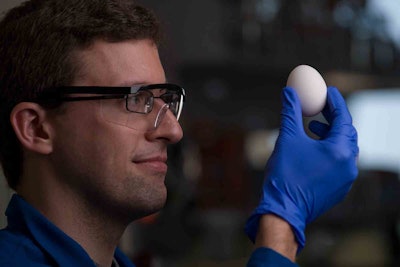
A team of chemists from the University of California Irvine and Australia have figured out a way to unboil egg whites from a hen and this isn’t just a case of nifty science. In fact, the research wasn’t as much about processing the egg, as it was about demonstrating the power of the process itself.
According to the researchers, the discovery could transform pharmaceutical and food manufacturing.
It’s “an innovation that could dramatically reduce costs for cancer treatments, food production and other segments of the $160 billion global biotechnology industry,” they reported in the findings published in ChemBioChem.
To pull it off, the team looked at how some valuable molecular proteins — with a wide range of applications but which frequently “misfold” into unusable shapes — and figured out how to effectively recycle them.
“The real problem is there are lots of cases of gummy proteins that you spend way too much time scraping off your test tubes, and you want some means of recovering that ‘material,’” said Gregory Weiss, UCI professor of chemistry and molecular biology and biochemistry.
First the team re-created a clear protein known as lysozyme in the boiled egg by adding a urea substance that chewed away at the whites and liquefied the solid material. Then, because the protein bits were still balled up at a molecular level, they used a vortex fluid device (a high-powered machine) to apply shear stress within thin, microfluidic films, which forced the proteins back into their untangled, proper form.
They believe the process could have ramifications because of how it quickly and cheaply re-forms common proteins, which streamlines protein manufacturing.
“For example, pharmaceutical companies currently create cancer antibodies in expensive hamster ovary cells that do not ‘misfold’ proteins,” a UCI announcement of the finding states. “Industrial cheese makers, farmers and others who use recombinant proteins could also achieve more bang for their buck.”
UCI has filed for a patent of the work and its Office of Technology Alliances is working with interested commercial partners.
Learn more about the discovery here.






















